<< Previous | Displaying results 626-650 of 6769 for "" | Next >>
Moise's family were Romaniot Jews, a group that had lived in Greek cities and the Balkans for 1,100 years. In the early 1920s Moise's family moved to Italy, where his father tried to find work. Moise attended school, and when his family returned to Greece after two years, he remained in Italy to complete school. When Moise returned to Preveza at age 17, he had forgotten Greek. 1933-39: Moise worked as a bookkeeper and administrator at the local electric company in Preveza, and he lived with his parents.…
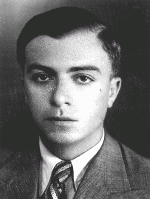
Tomasz was born to a Jewish family in Izbica, a Polish town whose largely religious Jewish community comprised more than 90 percent of the population. Tomasz's father owned a liquor store. 1933-39: In September 1939, a drum sounded in the marketplace, calling the town to assemble for a news report. Germany had invaded Poland. More news arrived shortly; the Soviet Union was invading from the east. Tomasz and his family didn't know what to do. Some people said to run to the Soviet side; many, including his…
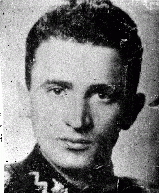
Naftali was the youngest of nine children born to devout Hasidic Jewish parents living in Kolbuszowa. In the Hasidic tradition, he wore a long black coat and shoulder-length earlocks. He first faced antisemitism in the second grade when his teacher cut one earlock off each Jewish boy. Naftali escaped the teacher's shears, and his father, a respected merchant, had the teacher suspended. 1933-39: On September 9, 1939, the German army invaded Naftali's town and decisively defeated a small contingent of…
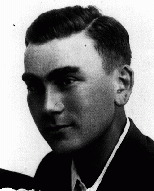
Samuel's parents immigrated to Palestine when he was very young. They lived in Rishon le Zion, the first settlement in Palestine founded by Jews from outside of Palestine. After graduating from high school, Samuel became active in a movement challenging the British mandate in Palestine. 1933-39: Samuel was expelled from Palestine in 1936 because of his outspoken criticism of the British mandate. He went to France and then to Spain just after the civil war began. Samuel fought for three years with the…
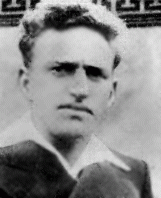
When Wolf was a young boy, his family moved to France to escape Poland's economic instability and growing antisemitism. Soon after they settled in Paris, his father found work in construction, and Wolf started elementary school. 1933-39: Paris was home to Wolf, but he loved to listen to his parents reminisce about autumns in Krasnik and journeys to Lublin. Hitler invaded Poland in 1939. The Wajsbrots learned of the death camps and mass deportations of Jews. Wolf's parents no longer spoke of the past. Wolf…
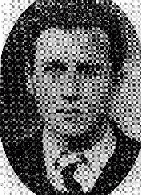
Boria was born to a Jewish family living in the Bessarabian province when it was still a part of the Russian Empire. Following Romania's 1918 annexation of the province, life for Bessarabia's 200,000 Jews worsened. Subject to more widespread antisemitic laws and pogroms than while under Tsarist Russian rule, many Bessarabian Jews emigrated overseas or sought refuge back in Soviet villages. 1933-39: Boria became active in a local revolutionary communist group and was arrested and jailed many times. After…
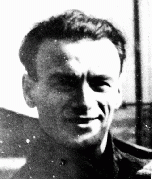
Fanny was the oldest of three girls born to a Jewish family in the Baltic seaport of Liepaja, a city with a large Jewish community in Latvia. Fanny attended a Jewish primary school there. Her parents owned and operated a shoe store and small shoe factory. 1933-39: As a young girl, Fanny's life revolved around activities with Betar, a Zionist youth movement founded in Riga in 1923. They had a group of about 25 boys and girls. They studied about Palestine and their Jewish heritage. In 1935 Fanny's mother…
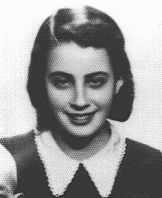
Jacob was born to a Jewish family in the Baltic seaport of Liepaja. He owned a clothing store in the city, and also owned some apartments, from which he collected rent. After his wife died, Jacob, who had retired, moved in with his daughter Sarah. 1933-39: Jacob was an avid reader. His favorite newspaper was Liepaja's German language daily, the Libauer Zeitung, which he liked to read in the garden and orchard around his daughter's home. On Sundays, "Grampa" would take his granddaughters Fanny and Jenny…
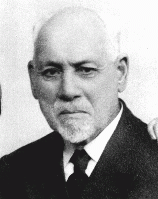
Herman was the oldest of nine children born to a Jewish family in the Latvian village of Aizpute. He was a World War I veteran, and after the conflict, in 1918, he fought for the establishment of a free Latvian republic. Two years later he married Sarah Gamper and they settled in the city of Liepaja, where they owned a shoe store. By the late 1920s they had two daughters, Fanny and Jenny. 1933-39: Herman designed patterns for the uppers of shoes, which he used to fashion into finished shoes. His shoe…
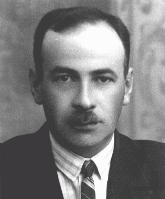
Sarah, born Sarah Gamper, was one of four children born to a Jewish family in the Baltic port city of Liepaja. Her parents owned a general store there. At the outbreak of World War I, Sarah was studying piano at a conservatory in Russia. During World War I, she remained there to serve as a nurse. She returned to Liepaja, and after marrying Herman Judelowitz in 1920, settled there. 1933-39: Sarah and Herman operated a shoe store in the front of their small shoe workshop. By 1935 they had three daughters,…
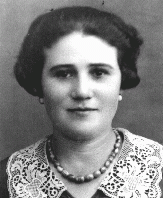
Bella, born Bella Hirschorn, was raised in a Jewish family in the Latvian town of Kuldiga. When she was a young woman, Bella moved to the small town of Aizpute, where she met and married Daniel Judelowitz. Together they opened a bakery-grocery in the town. In the 1920s they moved to Liepaja and opened a dry goods store. The couple had 10 children, one of whom died in infancy. 1933-39: The Judelowitzes' store sold fabric and various clothing items and accessories from buttons to shirts and stockings. After…
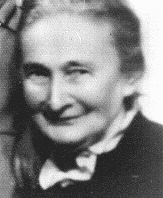
Daniel was born to a Jewish family in the Latvian town of Aizpute. There, Daniel met and married Bella Hirschorn and together they opened a bakery-grocery in the town. In the 1920s they moved to Liepaja, on the Baltic coast, and opened a dry-goods store. The couple had 10 children, one of whom died in infancy. 1933-39: The Judelowitzes' store sold fabric, accessories and various clothing items from buttons to shirts and stockings. After Daniel and Bella retired, their daughters took over the business. In…
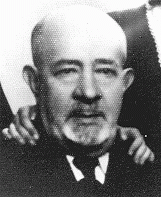
Betty was one of 14 children born to a religious Jewish family in Aufhausen, a village in southwestern Germany. Her father was a successful cattle dealer in the area. On May 8, 1903, at age 20, Betty married Max Lauchheimer, a cattle merchant and kosher butcher. They lived in a large house by an orchard in the village of Jebenhausen. Betty and Max had two children, Regina and Karl. 1933-39: In late 1938 Betty and Max were visiting their daughter in Kippenheim when police arrested Max and their son-in-law.…
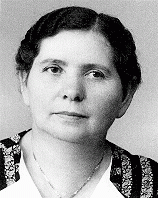
Wilhelm was the oldest of two children in a Jewish family living in the Habsburg capital of Vienna. Shortly after Wilhelm was born, World War I broke out. Because of food shortages, Wilhelm and his mother left for her hometown of Hostoun, near Prague. After the war they returned to Vienna where his father had remained to run his shoe business. As a young man, Wilhelm worked for his father. 1933-39: In March 1938 Germany annexed Austria. Soon after, the Germans arrested Wilhelm because he was a Jew dating…
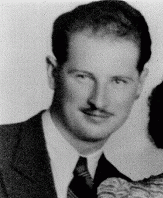
Channah was one of six children born to a Jewish family. In 1914, a year after her father died, the family fled during World War I to Russia. After the war they returned to Lithuania and settled in the village of Pampenai in a house owned by Channah's grandparents. When Channah's three oldest siblings moved to South Africa in the 1920s, Channah helped support the family by sewing. 1933-39: Channah was working as a seamstress in Pampenai when, in the mid 1930s, she met and married Channoch Zaidel. The…
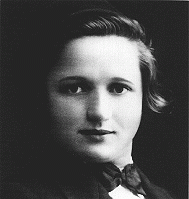
Sara, born Sara Bernstein, was one of six children in a Jewish family in the Lithuanian village of Karchai. Her father was a farmer. Sara attended secondary school in Jonava and in 1920 she moved to Siauliai, where she met and married Pinchas Galperin. The couple owned and ran a dairy store, selling butter, milk and cheese. They had three children--two sons and a daughter. 1933-39: In addition to running the family store and rising early every morning to buy dairy products from the local farmers, Sara was…
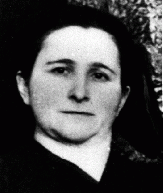
Nesse was born to an observant Jewish family in Siauliai, known in Yiddish as Shavl. Her parents owned a store that sold dairy products. The city was home to a vibrant Jewish community of almost 10,000 people. It had over a dozen synagogues and was renowned for its impressive cultural and social organizations. 1933–39: Nesse's family was very religious and observed all the Jewish laws. She attended Hebrew school and was raised in a loving household, where the values of community and caring always were…
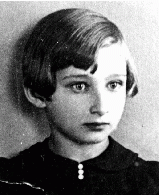
Alexander was one of six children born to a Jewish family in the Lithuanian village of Karchai. His father was a farmer. In nearby Janova, Alexander attended public school and also studied Hebrew and Jewish history in a religious school. In 1925 Alexander moved to Siauliai to attend secondary school. He lived there with his older sister. 1933-39: Alexander enrolled in university in Kovno, and entered the pharmacology department. After completing his degree, he returned to Siauliai and took a job in a…
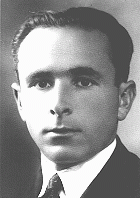
Rachel, born Rachel Karpus, was born to a Jewish family in the northeastern Polish city of Vilna. At the age of 16, Rachel married Reuven Galperin, a typesetter for a Jewish newspaper in the city, and the couple subsequently had 16 children. Only nine of the children lived to the 1930s. 1933-39: In addition to caring for her children, Rachel also operated a small grocery on Nowigorod Street. In 1938 Rachel's husband died. One year later, on September 1, 1939, Germany invaded Poland and 17 days after that…
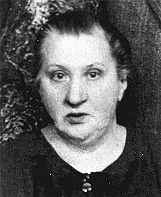
Born to a Jewish father and a Catholic mother, Otto grew up in a city well known for its musical tradition. The younger of two children, Otto began studying the piano at age 10. After entering the Vienna Conservatory of Music, he gave his first concert at age 14. Encouraged by Maestro Bruno Walter, he hoped to become a conductor and concert pianist. 1933-39: After Germany annexed Austria in March 1938, Otto was kicked out of the Vienna Conservatory. One night, two men ordered him to go with them to a…
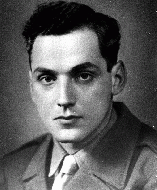
Leo was the oldest child and only son of Polish immigrants in Vienna. His father, a tailor and amateur Yiddish actor, died of an illness in 1930 when Leo was 9. His mother supported the family by working as an embroiderer; Leo helped out by looking after his two younger sisters. They lived in one of Vienna's large Jewish districts on the east side of the Danube Canal. 1933-39: Anti-Jewish sentiment escalated after Germany annexed Austria in 1938. Jewish men, including some of Leo's uncles and neighbors,…
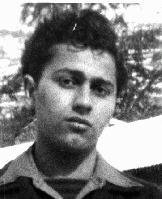
As a boy, Pavol lived with his parents in the city of Martin in Slovakia. His father taught at the local agricultural college. The Kovacs, who were non-practicing Jews, were among the few Jewish residents in the town. 1933-39: When Pavol was born, almost nine months before the outbreak of World War II, his parents decided to have "Roman Catholic" listed under the entry for religion in his birth certificate. They took this step to protect him, despite the fact that for generations Jews in their region had…
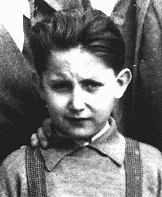
Dorotka was the youngest of three children in a Jewish family. Her father was the director of the Jewish Telegraphic Agency in Warsaw and worked for a popular newspaper. An avid Zionist, he had traveled to Palestine. 1933-39: Dorotka's father established a soup kitchen in Warsaw for Jewish refugees who had fled from Germany. In September 1939 Dorotka was supposed to begin first grade when war broke out. Her father escaped to Vilna with other Jewish leaders. People were suffering, but she didn't understand…
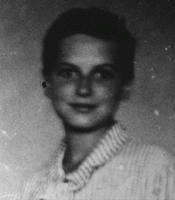
Elka was raised in a large, Yiddish-speaking Jewish family in Sokolow Podlaski, a manufacturing town in central Poland with a large Jewish population of some 5,000. Elka was 14 when she graduated from middle school. After completing her schooling, she became a tailor. Working at home, she made clothes for different clothiers in town. 1933-39: Elka was unmarried and living with her parents when war between Germany and Poland broke out on September 1, 1939. German aircraft bombed Sokolow Podlaski's market…
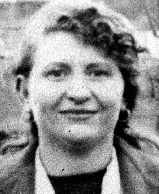
Laura was the second of five children born to religious Jewish parents in the industrial city of Lvov. She was often called affectionately by her nickname, Lorka. Coming from an educated family living in a multi-ethnic part of Poland, she grew up speaking Polish, Russian, German and Yiddish. As a young woman, she earned a humanities degree from St. Nicholas University in Lvov. 1933-39: In April 1935 Laura became Mrs. Daniel Schwarzwald. Her husband was a successful lumber exporter, and they lived in a…
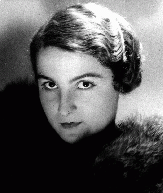
We would like to thank Crown Family Philanthropies, Abe and Ida Cooper Foundation, the Claims Conference, EVZ, and BMF for supporting the ongoing work to create content and resources for the Holocaust Encyclopedia. View the list of donor acknowledgement.